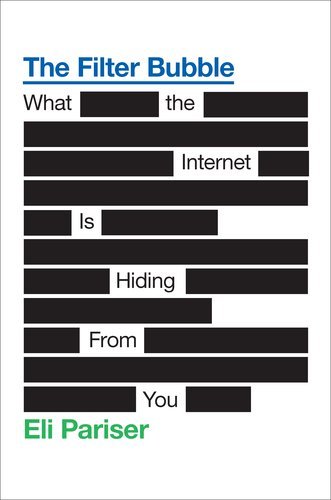I was surprised to read a defense of the AT&T-T-Mobile merger here.
Let’s begin at the beginning and ask why this merger is happening. It’s not as if AT&T is gaining dominance the way Google gained it in search and advertising, or the way Intel did in chips: i.e., through low prices, superior products and customer loyalty. No, last time I looked AT&T was the carrier with the lowest customer satisfaction ratings, some of the highest prices and one of the weakest network performance metrics. In my opinion there is no reason for this merger to take place other than to make life easier for AT&T by reducing competitive pressures on it. AT&T seems to be driven by the following calculus. It can either grow its services and its network under the harsh constraints of market pricing and competition, or it can attempt to reduce the field to an oligopoly with tacit price controls by using its size and financial bulk to eliminate a pest who keeps downward pressure on pricing and service requirements. I think it is rational for AT&T to try to get away with the latter. I think it’s insane for free market oriented thinkers to support it.
Larry Downes can’t argue with the extremely high level of market concentration and the scary HHI measurements that the merger would produce. So he plays the game that clever antitrust advocates always play: shift the market definition. Downes argues that “both Justice and the FCC have consistently concluded that wireless markets are essentially local.” I see no citation to any specific document in Downe’s claim, but if FTC and FCC have concluded that “local” means “my metropolitan area” they are wrong.
Let’s reacquaint everyone with a very basic but pertinent fact: 93% of the wireless users in the U.S. are served by the national carriers. This number (the proportion served by national as opposed to regional providers) has generally increased over the past decade, driven by both demand-side requirements, mergers, and supply-side efficiencies. The choices of consumers have rendered a decisive verdict negating Downes’s claim. Whether it’s voice or data, people expect and want seamless national service; a small but significant segment wants transnational compatibility as well.
Increases in the scope of service will intensify as we move from a primarily voice-driven market to a data-driven market. Carriers who have to impose roaming charges and interconnection fees on their users will not be competitive. Nor will they be able to attract the interest of the cutting-edge handset manufacturers and service developers. Can you imagine Apple signing an iPhone exclusivity deal with Cricket?
It is no accident that the dominant mobile network operators have national brands and national footprints. Most Americans travel outside their metro areas at least once a month, and go places further away than that at least once or twice a year. The 93% who choose a national carrier are rationally calculating that it pays to not have to guess the service area limits of their provider. Of course, a highly budget-constrained segment of the market will accept limited local service for a lower price. To say that those smaller providers are in the same market as a T-Mobile or AT&T is not plausible. They occupy a niche. And if one allows a major merger like this on the grounds that these tiny players constitute a competitive alternative to the likes of AT&T, what are you going to say as the last of these local providers is gobbled up?
How about that “spectrum efficiency” argument? Downes, like the AT&T Corp., makes the same claim that the old AT&T made when it said there should be no microwave-based competition in long distance. As a matter of pure engineering efficiency, it is of course true that a single, optimizing planner can make better use of limited spectrum bands than multiple, competitive providers. But then, that argument applies to any and all carriers (an AT&T-Verizon merger, for example) and to any resource – that’s why it was used by the socialists of the 19th century to claim that capitalism was inherently wasteful and inefficient. Dynamic efficiencies of competition typically benefit the public more than a few allocative efficiencies. And there are plenty of ways for AT&T to expand network capacity without merging.
But there is an interesting twist to this line of reasoning. Notice how the “market is local” claim suddenly disappears. AT&T needs to take over a smaller national rival, according to Downes, so it can “accelerate deployment of nationwide mobile broadband using LTE technology, including expansion into rural areas.” Voila! Once we start talking about spectrum efficiencies and the promotion of universal service we take a nationwide perspective, not a local one. Doesn’t this obvious contradiction make anyone suspicious?
Notice also the ominous historical overtones of AT&T’s claim that it will be able to promote universal broadband service in rural areas if it has a stronger monopoly er, if it gains consolidation efficiencies. Hey, rural areas don’t have congested spectrum, do they? What’s stopping them from doing that now? If they need help to do it, where are the subsidies going to come from? Would more market power make that possible? One cannot help but ask: Is AT&T doing this to get more spectrum or is it trying to pull a neo-Theodore Vail, and promise the government that it will subsidize rural access if it has more market power?
Bottom line: this is one step too far back to the days of a single telephone company. If you support a competitive industry where one can reasonably expect the public and legislators to rely on market forces as the primary industry regulator, this merger has to be stopped. On the other hand, if you welcome the growing pressures for regulating carriers and making them the policemen and chokepoints for network control, a bigger AT&T is just what the doctor ordered.




 The Technology Liberation Front is the tech policy blog dedicated to keeping politicians' hands off the 'net and everything else related to technology.
The Technology Liberation Front is the tech policy blog dedicated to keeping politicians' hands off the 'net and everything else related to technology.